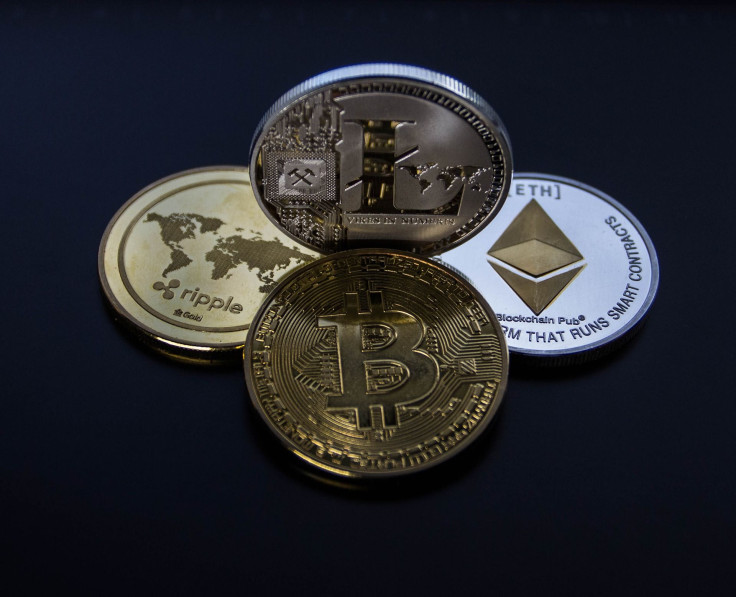Litecoin Predictions: Why LTC May Replace Bitcoin

Disclosure: I currently own a small amount of Litecoin that I keep should I want to invest in other cryptocurrencies. Ironically, my reason for owning Litecoin has switched from an investment preference to a medium of exchange for other crypto preferences. This article may positively or negatively affect my holdings.
Everyone right now loves to talk about Bitcoin (BTC). It’s the largest cryptocurrency out there, and regulators, traditional media and economists alike sometimes talk as if it’s the only digital currency. It’s not. There are well over one thousand alternatives to Bitcoin. And one of those, possibly Litecoin (LTC), could replace BTC.
One way to understand cryptocurrencies is to liken digital currencies to the video game console industry of the 1980s. No one in the early ’80s could tell Nintendo would come out as the dominant player in the space. The world just knew that once you could play video games in your living room, it made little sense to travel to arcades.
Bitcoin has been the dominant player thus far, but this doesn’t mean Bitcoin is the future of cryptocurrencies. In fact, it is probably more like the Commodore 64. While Bitcoin is the original cryptocurrency, nobody should be convinced that its first-mover advantage will be maintained over the long term. When I was asked in this question on Quora about the price of Litecoin vs. Bitcoin, my answer is was simple: “Price is not reliant on functionality but on perception, adoption and utility. [Litecoin] could be worth more [than Bitcoin].”
That is not to say I am a fervent believer in Litecoin as “the Nintendo.” I personally believe certain cryptocurrencies, such as Cardano, Qtum, Iota (disclosure: I own some Iota as well), have better long-term prospects. But in the middle term, Litecoin could replace Bitcoin as the lead dog during the next phase of cryptocurrency evolution. This is because Bitcoin has issues, despite its past profitability for speculators and utilization over traditional currencies in the crises in proof cases such as the Nigerian dollar crunch 2017 or the Zimbabwean ouster of Robert Mugabe.
A number of general issues with Bitcoin include:
- It doesn’t scale well. The blockchain technology on which Bitcoin relies creates a bottleneck on the number of transactions that can occur at the same time.
- The “Proof of Work” method used to verify transactions has caused astronomically high fees and uses an untenable amount of electricity.
- It’s expensive. Who wants to figure out the math on what fraction of a Bitcoin you need to pay for groceries? People perceived the astronomical rise in Bitcoin and began to justify why we should use a currency that costs $10,000 to $20,000 USD per coin. If we wanted to adopt a currency that costly, we all could have pushed to use gold ETFs to buy groceries years ago.
- BTC does not allow for important features people view preferential in cryptocurrencies, such as the ability to include “smart contracts” with every transaction.
- It is vulnerable to quantum computing. While the technology doesn’t exist yet, some technologists believe that the evolution in artificial intelligence will soon create the breakthrough in quantum computing that renders Bitcoin and its first generation distributed ledger technology obsolete.
The question then becomes: Does “X” coin (in this article, X represents Litecoin) become the preferred digital currency of the future? And which coin will it be?
The case for Litecoin is a simple one. Litecoin is a digestible step forward from Bitcoin as it employs the Bitcoin Core client with technologies in place to solve the issues of scalability and transaction fees (for those of you with more technical curiosity — the methodologies employed are referred to as Segregated Witness and the Lightning Network ). This makes Litecoin an easy conceptual leap for those who want to use a Bitcoin-like cryptocurrency as a medium of exchange and a store of value.
Created in 2011 by Coinbase employee Charlie Lee, LTC is the only coin currently accepted on Coinbase — one of the largest U.S. platforms for purchasing cryptocurrencies — that costs under $1,000. At the time of this writing, Litecoin was trading between $160 and $180 per coin.
Because LTC was designed to process transactions at four times the speed of BTC (decreasing block generation time to 2.5 minutes) with much lower transaction costs, adopting Litecoin as a medium of exchange and utilizing it for such transactions seems more palatable than the other coins listed on coinbase. Of the top 10 cryptocurrencies by market capitalization, Litecoin is the only decentralized currency under $1,000 USD with a limited supply.
That being said, there are still areas in which Litecoin could fall short. Litecoin was first and foremost a coin that sought to assuage Bitcoin’s more concrete problems regarding transaction speed, costs and general scalability. It also, however, falls short on features like “smart contracts” and “quantum-proofing.”
Lee sold all his LTC recently under the auspices of wanting to advocate for the digital currency without the potential conflict of profiting off his own comments. However, there are detractors, such as the anonymous blogger Bitfinex’ed who posits that Lee’s actions could be market manipulation and insider trading. While roughly $160 seems reasonable compared to the $370 price at which Lee offloaded his holdings, there remains a question of whether or not the inertia for Litecoin will continue to sustain a similar price level with its founder no longer vested in the coin.
This article reflects the opinions of the author and is not intended to be financial counsel.
© Copyright IBTimes 2025. All rights reserved.





















